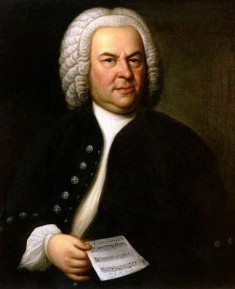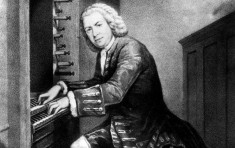| Johann Sebastian Bach | |
|---|---|
 |
|
| Composer | |
| Specialty | Organist, harpsichordist, violist, violinist |
| Born | Mar. 31, 1685 |
| Died | Jul. 28, 1750 |
| Nationality | German |
Next to Mozart and Beethoven, Johann Sebastian Bach is among the most prominent of all composers in history. His skill helped establish a uniquely German style. Interestingly, while Bach was known as a great organist in his lifetime, he was not regarded as a brilliant composer until many years after his passing.
Bach’s Early Years
Johann Sebastian Bach was born on March 21, 1685, in Eisenach, Germany. His beginnings were not what could be called humble since his family was affluent. Various members of Bach’s family were also involved with music. In many ways, this helped expose him to music at a very young age and started him down the path of becoming a great composer. He learned various instruments from his father, uncles, and brothers. These instruments ranged from the violin to the clavichord.
When he was ten, Bach’s parents both passed away. The young man went on and live with his brother, Johann Christoph Bach, who was the organist serving the Michaeliskirche in Ohrdruf, Saxe-Gotha-Altenburg. His brother went on to become a great teacher and influence on young Bach and stimulated a desire to seek out a formal education.
Educational Years
At the age of 14, Bach enrolled in the famous St. Michael’s School. Upon graduating, he took a rather menial job as a musician at the chapel of Duke Johann Ernst in Wiemar where he would spend the next seven months. He moved on to a new job at St. Boniface’s where he received a much better salary and a more prestigious post.
A tremendous job opportunity awaited him at St. Blasius’s where he not only garnered a huge salary, he was also able to write a cantata—Gott ist mein König, BWV 71 as a celebration of the new council. While money may not have been the main motivating factor behind writing the composition, he earned a great deal from it. Great critical acclaim also accompanied this work.
Major Works and Compositions
There are several amazing works and compositions that were created by Bach. A great catalog entitled Bach Works Catalogue was first published in 1950 and it is the seminal work listing all of his compositions.
 His organ works such as the Great Eighteen chorales and the six trio sonatas were well-received and still are today. The music in these works is very similar to the traditional German folk arrangements. There were many other keyboard works that are designed to play on the harpsichord and the clavichord. The 15 Inventions and 15 Sinfonias, the Goldberg Variations, and the Well-Tempered Clavier are three of these most well known works he crafted in the keyboard genre.
His organ works such as the Great Eighteen chorales and the six trio sonatas were well-received and still are today. The music in these works is very similar to the traditional German folk arrangements. There were many other keyboard works that are designed to play on the harpsichord and the clavichord. The 15 Inventions and 15 Sinfonias, the Goldberg Variations, and the Well-Tempered Clavier are three of these most well known works he crafted in the keyboard genre.
The keyboard certainly saw a great deal of elevation due to Bach’s. This is not to suggest Bach was the only composer to use the keyboard, but he certainly helped the instrument gain a far greater level of success.
Works for the Church
Chamber and orchestral music were written and done so in great variety. Bach wrote a number of solos, duets, and other arrangements that fall under these categories. Cantatas were other works that he produced. The cantatas were based on the church readings on Sundays and feast days. As a result, they were religious in nature.
Among the more interesting works that were created by Bach were his passions. These works were choral orchestral compositions and designed on a grand scale. The most well known of these works was the Good Friday presentations of the St. John Passion and the St. Matthew Passion. Several other passions were composed and they were quite well received.
No matter what type of work Bach was involved with composing, there were certain components that clearly distinguished his work from others. For one, Lutheran liturgy was highly influential on him as were music from German, French, and Italian traditions. Improvisation was another aspect of the works that Bach was quite fond.
Last Years and Death
Johann Sebastian Bach saw his health decline immensely in 1749. He was starting to suffer from blindness due to his declining health. His eyes were operated on and this turned out to be a disastrous outcome. Bach died on July 28, 1750, from complications related to the surgery on his eyes.